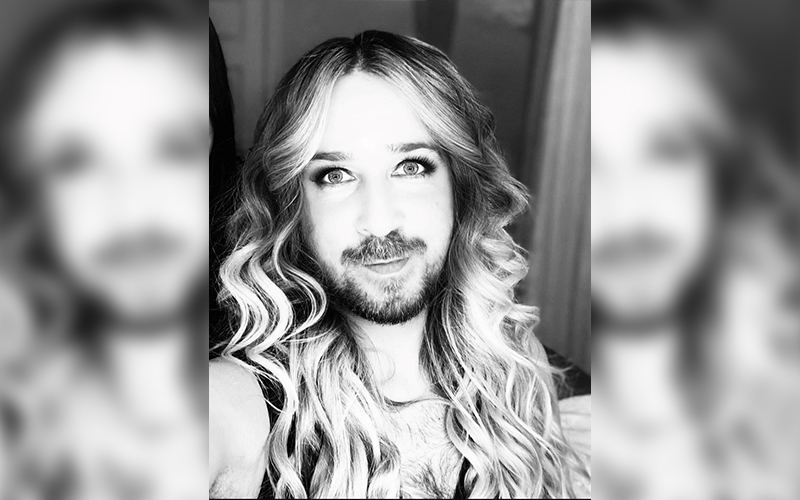
Transgender Day of Visibility takes place on March 31st each year to celebrate Trans and non-binary people. In our latest blog, Aaron Bergin, co-chair of Cygnet’s LGBTQ+ Network, shares their reflections both on the importance of this day and how you can be an Ally to the Trans community.
The 2021 Census was a historic moment for the LGBTQ+ community in England and Wales. For the first time, the Census included two new voluntary questions on sexual orientation and Trans status. In England & Wales 0.5% of the population (262,000) reported having a gender identity that is different from the one they were assigned at birth.
It’s important to recognise that Trans people in the UK are still faced with abuse and inequality. Research carried out by Stonewall in 2018 found that 2 in 5 Trans people have had a hate crime committed against them, 2 in 5 Trans young people have attempted suicide and 1 in 8 Trans people had been physically attacked by colleagues or customers at work. Those numbers are quite shocking especially given that such abuse can take place within the workplace.
Transgender Visibility Day is not just about recognising the struggles of the community but a time to celebrate the diversity and uniqueness of our Trans Community. Trans people around the UK have rich, rewarding lives, careers, families and relationships, just like any other group of people.
Being Trans is not what causes Trans people harm and distress, transphobia is.
What does ‘cis’ mean?
‘Cis’ is short for ‘cisgender’, which means somebody whose gender identity matches the sex they were given at birth.
Some people are offended when they are referred to as CIS however this is a useful term to help people better understand gender and to avoid separating people in to categories like ‘Trans people and Normal people’.
Some think that this is related to sexual orientation which it isn’t – an example is that you could be a CIS gay man – meaning you identify with being male as you were assigned at birth and you are attracted to the same sex. It is not a slur on straight people.
The Trans & Non Binary community can face difficulties with everyday things that others wouldn’t need to worry about, even something as seemingly simple as going to a public toilet. Anyone whose appearance doesn’t fit with stereotypical ideas around what men or women look like are increasingly being challenged, some feel this is just an interesting debate topic and this can have a negative effect on the whole LGBTQ+ community.
There should be gender neutral single stall toilets available as restricting Trans peoples’ access to public toilets severely limits their ability to live their lives freely.
How can you be an Ally to the Trans Community?
- Everyone has the right to choose their pronouns and they can also change their minds – it’s important to simply ask and if you make a mistake apologise and try and use the correct pronouns moving forward.
- When supporting people we provide care for it is important to confirm if they wish to use their pronouns in Care Plans and whether they are comfortable with others knowing, including family members, it is important to respect their confidentiality.
- During 1:1’s proactively ask if they wish to share any difficulties they are facing and if there is anything you can do to support. Just knowing they have an open and safe space can be very beneficial and affirming.
- More and more people are recognising the importance of stepping up and being a vocal ally to Trans people. Prominent individuals in politics and in the media are already doing it, as are leading organisations and businesses. If you see something you believe to be transphobic or phobic in anyway, please advocate for others – if it isn’t safe to do so check in with that person later to see how they are feeling.
- Education is massively important and we can all continue to educate and learn throughout our lives, it’s important to seek out relevant information online to help us better understand others and those from the Trans community.
You will find most stories and articles may sadly focus on discrimination and violence towards this community, but there are also wonderful and inspirational stories out there of people who have been able to raise awareness and help lower the stigma attached to being part of the Trans or non-binary community.
Use what you have learnt to speak to others and help raise their awareness and understanding. If you find a story or article you feel helps with lowering stigma and celebrating our community then share it with the hashtag #TransgenderDayOfVisibility
A resource I found very informative is https://www.stonewall.org.uk/the-truth-about-trans#trans-people-britain. It helps explore a few common misconceptions of Trans people and provides commonly asked questions and answers. I think it is a great starting block to build more understanding of this diverse community. Please take the time to have a look.
I regularly check Stonewall’s page as I find it very informative on an array of LGBTQ+ topics, legislations and stories.